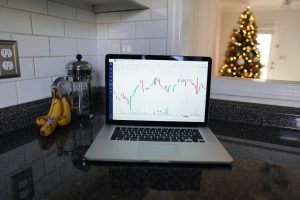Forex, short for foreign exchange, is the largest financial market in the world. It is a decentralized market where currencies of different countries are traded in pairs. Transactions in the forex market are conducted electronically between market participants, including banks, corporations, governments, and individual traders. One of the most significant advantages of trading forex is that profits from forex trading are not taxed in most countries. This article explores the reasons why forex is not taxed.
Forex is not considered a taxable income in most countries because it is treated as a form of capital gain. Capital gains are profits made from the sale of capital assets, such as stocks, bonds, and real estate. The tax laws in most countries treat capital gains differently from ordinary income, such as salaries and wages. Capital gains tax rates are generally lower than ordinary income tax rates, making forex trading a more attractive investment option for many traders.
Another reason why forex is not taxed is that it is a global market. The forex market operates 24 hours a day, five days a week, across different time zones. The market is not regulated by any central authority, and currency prices are determined by supply and demand forces. Therefore, it is difficult for any government to impose taxes on forex trading, as it is challenging to track the flow of money across international borders.
In some countries, forex trading is taxed, but only under certain conditions. For instance, in the United States, forex traders are required to report their profits to the Internal Revenue Service (IRS) and pay taxes on them. However, forex trading is only taxed if it is done as a business, and not as a hobby. The IRS considers forex trading as a business if it is done regularly, and the trader’s primary source of income is from trading forex. Hobby traders, on the other hand, do not have to pay taxes on their forex profits.
The tax laws on forex trading vary from country to country. In some countries, forex trading is completely tax-free, while in others, it is taxed heavily. For example, in India, forex trading is taxed at a rate of 30%, making it one of the highest tax rates on forex trading in the world. In contrast, in Cyprus, forex trading is tax-free, making it a popular destination for forex traders.
In conclusion, forex trading is not taxed in most countries because it is considered a form of capital gain. Capital gains tax rates are generally lower than ordinary income tax rates, making forex trading a more attractive investment option for many traders. Additionally, the global nature of the forex market makes it difficult for any government to impose taxes on forex trading. However, forex trading is taxed in some countries, but only under certain conditions. Therefore, traders should always consult with a tax advisor in their country of residence to understand the tax laws on forex trading.






